Consumer confidence, a key ingredient for healthy vehicle sales, is slipping, according to new polls And with buyers already wary of price hikes, New increases, triggered by President Donald Trump’s broad tariff policies could translate into a sharp market slump, report Headlight.News.
New vehicle sales are expected to climb as much as 10% for March, according to preliminary data, but the numbers may not be as promising as first appears. Researchers see many shoppers trying to beat the price hikes likely to come once President Donald Trump’s tariffs on imported autos and auto parts go into effect next month. The concern is that shoppers may then start to pull out of the auto market.
Across the auto industry, few economic indicators are watched as closely as consumer confidence or sentiment, which offers insight about how potential car buyers are feeling about their personal finances and the economy in general.
The decline in consumer confidence now apparent in major surveys could cut into sales of new vehicles later this year, according to analysts.
New vehicle sales steady in March
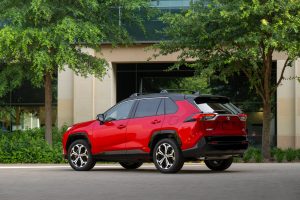
New vehicle prices have been running at or near record levels. What’s unclear is how much they might be impacted by tariffs.
For now. new vehicle sales are up as both consumers and retailers try to beat the impact of Trump’s trade tariffs. J.D. Power’s March sales forecast puts total sales up 10% year-over-year to 1.5 million, with retail demand rising as much as 13% to about 1.3 million for the sixth straight month of retail volume growth.
Analysts note at least some of the purchases in recent months have been prompted by fear of future price increases, which continue making vehicles less affordable. While they quibble over the precise numbers, Power and other analysts estimate that average transaction prices – which factor in MSRP, incentives and options – topped $48,000 in February, about $2,000 below the industry’s all-time record.
Even without the tariffs on imported autos, prices continue to rise. Several trade publications this week reported the price of cold-rolled steel, one of the principal building blocks of cars and trucks has surged nearly 25% due to the Trump-imposed tariffs on imported steel and aluminum enacted in mid-March.
Economic outlook grows dimmer
Jonathan Smoke of Cox Automotive noted this week the economy overall appears to be slowing, and the new 25% tariffs imposed on autos and auto parts under an executive order signed by President Donald Trump this week are certain to be disruptive. The stock market correction triggered by Trump’s tariff policy also will like weigh on buyers in the best financial position to purchase a new vehicle, according to Smoke.
The Federal Reserve Board is still expected to cut interest rates at its next meeting, Cox analysts forecast. But the bond market, which helps set the rates for auto loans has responded more slowly in the face of the uncertainty created by the administration’s policy choices.
Cathie Woods, a key investor in Elon Musk’s Tesla, said this week at least some of the company’s recent problems have been created by the weaker than expected demand for new vehicles in a slowing economy.
More Auto News
- Trump Tariffs Expected to Raise Prices, Hurt Auto Sales
- Who Could be in Line to Replace Tesla CEO Musk?
- Stellantis Says: Quit Your Job, Get a Check
Consumer sentiment heading down
The University of Michigan study of consumer sentiment in the US plunged to 57.9 in March 2025, the lowest figure since November 2022, and down from 64.7 in February. The latest number is well below preliminary forecasts of 63.1
The University said sentiment declined for a third straight month, with many consumers citing the high level of uncertainty around Trump administration policies and other economic factors.
While current economic conditions were little changed, expectations for the future deteriorated across multiple facets of the economy, including personal finances, labor markets, inflation, business conditions, and stock markets.
Meanwhile, inflation expectations surged, with the year-ahead gauge rising to 4.9%, the highest reading since November 2022, from 4.3%. Also, inflation expectations for the next five years surged to 3.9% from 3.5% in February, the largest month-over-month increase seen since 1993, according to U-M.
Conference Board echoes U-M survey
The Conference Board, which prepares the other major survey of consumer sentiment, said this week U.S. consumer confidence plunged to the lowest level in more than four years in March, with households fearing a recession in the future and higher inflation because of tariffs.
The Conference Board said on Tuesday that write-in responses to the survey showed “worries about the impact of trade policies and tariffs in particular are on the rise,” adding “there were also more references than usual to economic and policy uncertainty.”
The survey’s measure of future expectations hit a 12-year low and breached a level associated with an economic downturn.
Thumbs-down from economists
President Donald Trump’s on- and-off again tariffs have been panned by economists for sowing confusion and uncertainty that they said was making it challenging for business to plan ahead, to the detriment of the economy. Trump on Monday indicated that not all of his threatened duties would be imposed on April 2 and some countries may get breaks, but at the same time said tariffs on imported automobiles were coming soon.
He formally signed an executive order enacting auto tariffs on Wednesday – but some details have yet to be worked out by the U.S. Commerce Dept. That reflects the complexity involved in determining how to tally tariffs on autos and, in particular, auto parts that may cross North American borders multiple times.
“Consumers are rattled,” said Carl Weinberg, chief economist at High Frequency Economics. “At great personal risk, we will opine that the chaos in Washington has something to do with this. The decline in consumer sentiment since the November election can no longer be written off as a coincidence.”
The Conference Board said its consumer confidence index plunged 7.2 points to 92.9 this month, the lowest level since January 2021. Economists polled by Reuters had forecast the index sliding to 94.0.


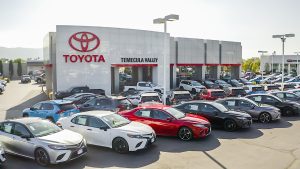


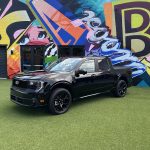
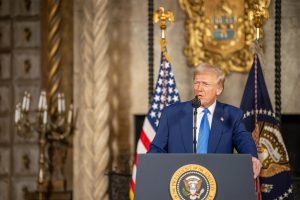
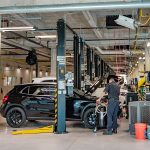


Buy the cars made in USA to avoid tariffs.
#1 USA content car is Tesla! MAGA
If prices skyrocket, which they may, fine, just maybe people will use a little COMMON SENSE when they pick options. Just MAYBE they will realize they don’t need 36 way adjustable seats, a 55 speaker audio, leather EVERYTHING, triple air filter (remember, when you open the door — no filtered air, oh my!).
I look at a car as a way to get from a to b; I spend < 1% of my time in it, why should it have 'features' I don't have or wouldn't get in my house? Most people have bought into the garbage the auto companies have been spreading, maybe this is where they stop.
Hell, most people don't even know how to use the 'features' provided in their car. My Ford econo-box has a redundant set of radio controls attached to the steering hub (5 inches from the radio face); why in the hell??????????? How much did that cost in variable cost plus Engineering?
Radio, cruise control (??), heater. That's it. Remember when all three were options?
Needing to say “MAGA” usually means you know your argument is weak. And you may notice that the tariff rules seem written in a way to especially benefit Tesla — by what will and won’t be hit with tariffs. FYI, even before Musk went political Tesla was losing market share rapidly. His U.S. sales growth was stalling. One reason: it charged a luxury price for vehicles that weren’t luxury. YOU may say you don’t need adjustable seats but simply tracking what people buy as OPTIONS shows that most buyers want those features. (And it’s beyond just getting talked into them by dealers.) Tesla read what early adopters wanted, or were willing to accept. It still hasn’t figured out what the mainstream wants. And that alone is hurting its sales.
You might buy the argument for tariffs…and I won’t use that reply to debate that…but RIGGING tariffs to favor a particular company should make a MAGA fan’s blood boil. You’d certainly be up in arms if the rigging favored, say, General Motors.
Paul E.
Well said, Paul E.